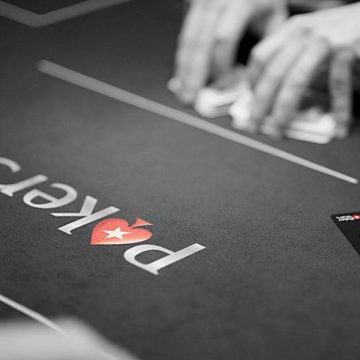
PokerStars continues to change player rewards policies to protect casual players by de-incentivizing play by the sharks on the site. Stars Group made changes about 18 months ago, but has spent the past several months tweaking policies again to drive out semi-professional players on the site and bring back more casual gamblers.
The move is driven by the decline in interest by casual players. The mass of online card players want to enjoy the game, in Stars Group CEO Rafi Ashkenazi’s words, but “want to enjoy the game as a fun entertainment experience that offers many winning moments and the dream of the big payout.”
Near-constant defeat at the hands of better players had a desultory effect on player interest.
Over the years, more skilled card players (sharks) have targeted the novice players (fish). The difference in skill level lets sharks make a living playing online poker by grinding day-and-night on a multiple tables at a time. These gamblers sometimes play on as many as 24 tables at a time.
PokerStars Changes Policies to Help Casual Players
That was not a problem at first, but over the past few years, too many sharks swim the water on PokerStars. Frustrated at being dominated in their hobby, casual players have stopped playing as much. That is a huge problem for PokerStars, which gets two-thirds of its $1.2 billion in yearly revenues from its Internet poker games.
Growth in online poker has flatlined. Instead, most of PokerStars’ growth over the past couple of years involved its online casino and sportsbook. When two-thirds of a company’s growth is hampered, changes are certain to be made. In an effort to change the “ecosystem”, Akehhasi wants to change policies so sharks cannot game the system as much.
VIP Status Rewards Program Changed
The Stars Group Inc., formerly known as Amaya Gaming, bought PokerStars for $4.9 billion in 2014. The company changed its rules regarding “VIP Status” rewards about 18 months after buying the world’s largest poker site, in part to change how sharks preyed on fish.
Severin Rasset, now Director of Operations and Innovation for Stars Group, said of the VIP Status changes, “We were starting to have too many professional players for what we could maintain for a good, healthy eco system.”
Celebrity Poker Ambassadors
To promote their game to casual players, PokerStars hired celebrity spokespeople like comedian Kevin Hart and spinter Usain Bolt. Kevin Hart made an appearance at the $100k Super High Roller Bowl back in May.
The company also changed the tournament payout structure, back to the way it was years ago. Now, more people receive payouts in a tournament, though those payouts are less. The idea is to reward the casual players who make a run in a tournament.
Ashkenazi says the new policies have helped his company spur interest from novice poker players. He told a group of analysts on August 9, “We see exactly what we wanted to see: a higher degree of engagement of our players.”
PokerStars Investors
The changes received a lot of complaints from high profile poker players, who naturally saw the game dynamics less weighted in their favor. Investors have responded positively to the changes, though. Since Razi Ashkenazi took over as CEO last year, share prices have increased 41%.
The list of investors back PokerStars and Stars Gaming is impressive. Wall Street investment firms like Stephen A. Schwarzman’s Blackstone Group LP and Larry Fink’s BlackRock Inc. are investors. The Sydney-based Caledonia Private Investments holds a 19% stake now.
Dimitry Khmelnitsky Discusses Online Poker
Everyone is not impressed, though. Dimitry Khmelnitsky of the Toronto-based Veritas Investment Research Corporation believes poker is a declining factor in worldwide online gambling. The analyst would not invest in an online poker company.
Khmelnitsky told Bloomberg News, “People still like poker, but it’s no longer trendy. The volumes of play on PokerStars are declining, less players enter the tournaments. That should not bode well for revenue.”
Rise and Fall of Online Poker
At one time, online poker was the trendy sector. After Chris Moneymaker won the 2003 World Series of Poker Main Event and the victory was broadcast on ESPN, a worldwide “Poker Boom” began. The boom continued throughout the decade of the 2000s, even after the United States federal government instituted the UIGEA ban on online gambling in 2006/2007.
When the US Department of Justice seized the domains of PokerStars, FullTilt Poker, and Absolute Poker and unsealed 13 indictments of iPoker executives on April 15, 2011, it caused a withering effect on the American online poker community. It was such a pivotal day in the history of online poker, the community called it Black Friday.
Since then, online poker has declined in popularity. While most European countries allow Internet and mobile poker, fewer players enter the live and online tournaments. The World Series of Poker is popular, but not as popular as it once was. Several Las Vegas poker rooms have closed, due to the drop in popularity.
Evolving Online Poker Business
The trend can be overstated. PokerStars still generates over a billion dollars a year in revenues. 888poker and PartyPoker are profitable businesses, even if they lag far behind PokerStars. Still, Stars Gaming and its competitors have to evolve and innovate to maintain their position.
Severin Rasset says PokerStars has to find new ways to appeal to its base of customers, the mass market poker players. Saying features which mimic the millennial generation’s love of video games and smartphone games, Rassit said, “I love video games. I want to infuse some of this into the poker world.”















